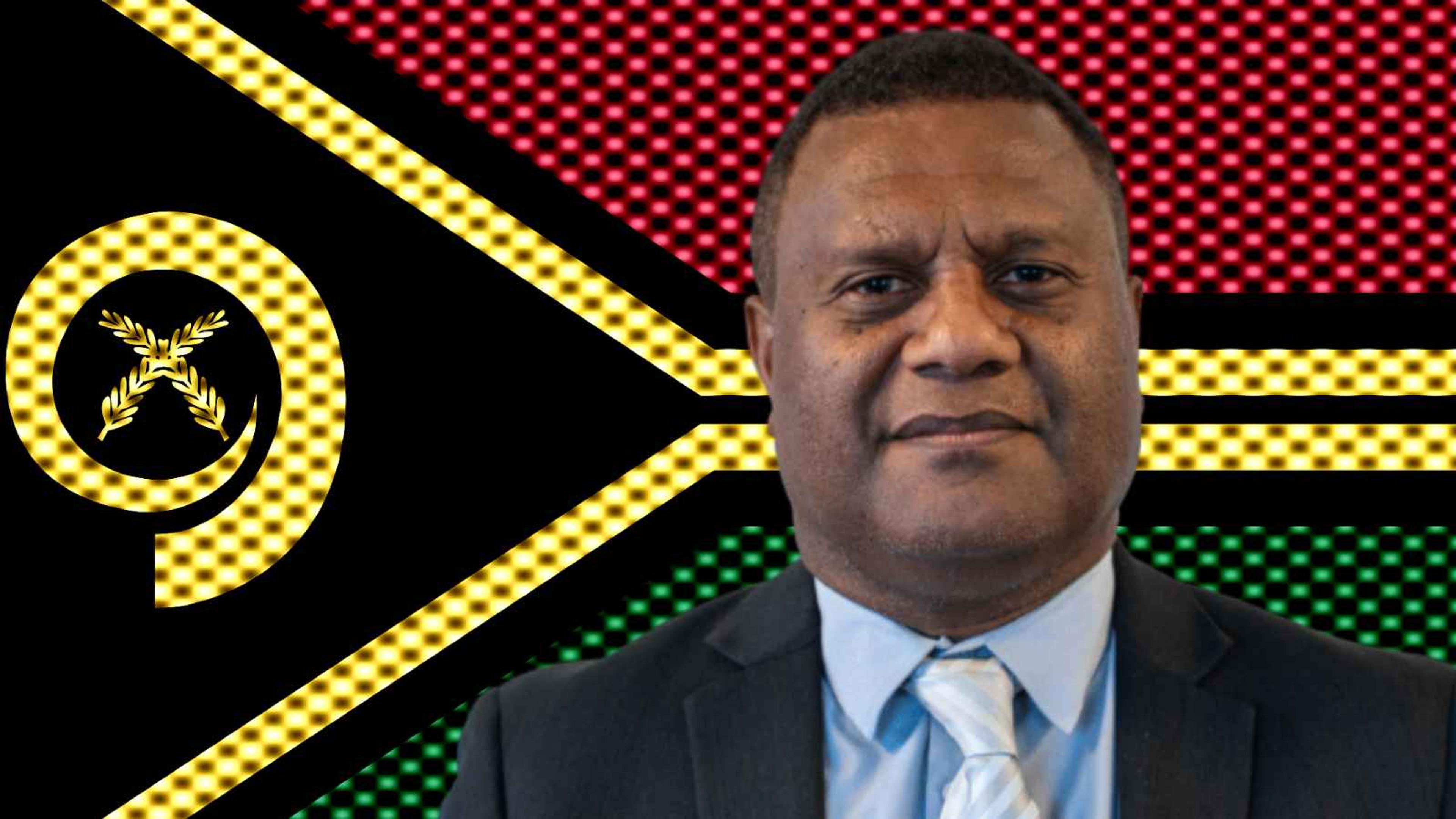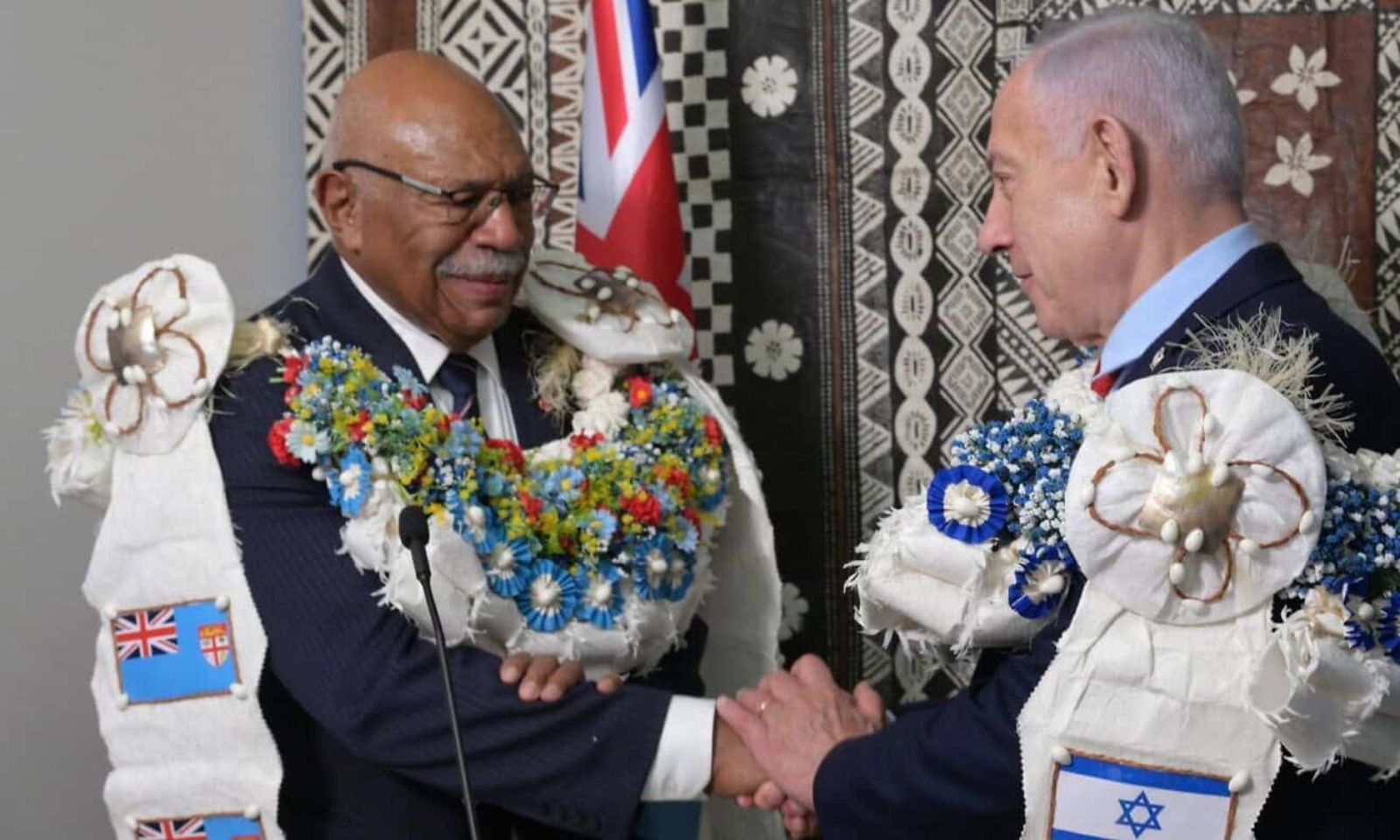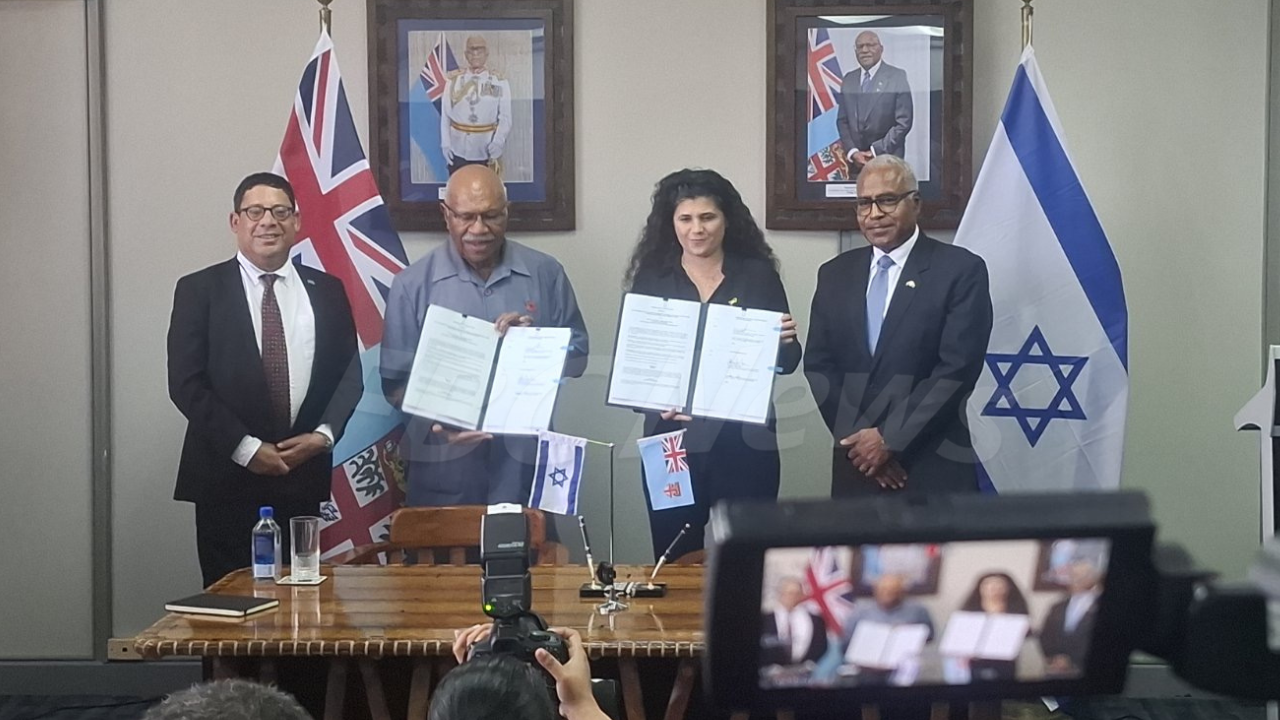

Gloria Mudaliar, left, Josiah Mudaliar, and Hannah Dass, of the Koronivia Christian Fellowship church blow the ‘shofar’ horn during the ‘March of the Nations’ to mark Israel’s 70th anniversary in Suva.
Photo/The Fiji Times/Eliki Nukutabu
Fiji and Israel sign cybersecurity pact
The agreement underscores Fiji’s growing strategic relations with Israel.



Funding sought to sustain Pacific-led youth and cultural revival in Manurewa

Pageant talk: Pacific queens on colourism, transparency, and online backlash

Blacklisting squeeze hits Vanuatu families and businesses, the regulator VFSC warns



Funding sought to sustain Pacific-led youth and cultural revival in Manurewa

Pageant talk: Pacific queens on colourism, transparency, and online backlash

Blacklisting squeeze hits Vanuatu families and businesses, the regulator VFSC warns
Fiji has signed a landmark Memorandum of Understanding (MoU) with Israel to boost cybersecurity and defence cooperation, marking a major step in their deepening partnership just weeks after Suva opened its first embassy in Jerusalem.
The agreement underscores Fiji’s growing strategic ties with Israel amid expanding business, agricultural and technological collaboration.
The pact was formalised this week in Suva between Israel’s Deputy Foreign Minister Sharen Haskel and Fiji’s Prime Minister Sitiveni Rabuka.
Rabuka told journalists that the agreement reaffirms Fiji’s support for Israel, particularly in confronting mutual cyber threats and bolstering national security resilience.
He says Fiji aims to strengthen “our resilience in vulnerable areas of cybersecurity”, adding that the collaboration will expand to broader business ties that could yield mutual benefit.
Haskel thanked Fiji for its steadfast support of Israel over the past two years, “especially during some of Israel’s most challenging times”.

Fiji's Prime Minister Sitiveni Rabuka, left, and his Israeli counterpart Benjamin Netanyahu during the opening of Fiji's embassy in Jerusalem. Photo/Jewish News Syndicate
She acknowledged the significance of Fiji’s decision to open an embassy in Jerusalem, saying that the cooperation would go beyond cyber defence to include business-to-business links, agriculture, and women’s empowerment in commerce.
“The prayers and solidarity of the Fijian people have not gone unnoticed,” Haskel told the media conference.
The MoU comes in the wake of Fiji’s recent diplomatic move. The government officially opened its embassy in Jerusalem on 17 September 2025.
This means Fiji becomes the seventh country in the world and the second in the Pacific to establish a resident mission in Jerusalem.
The decision was announced earlier in February 2025, with the Fiji Cabinet endorsing the location of the embassy in Jerusalem and proceeding following necessary risk assessments.
During the inauguration, Prime Minister Rabuka emphasised that establishing an embassy “is not a blanket endorsement of another country’s policies; it is a bridge that allows Fiji to work directly with partners”.
Israel’s Foreign Minister Gideon Sa’ar has welcomed the move, calling it “bold, moral and historic”, saying it signified deep values shared between the two countries.
But the decision has not been without controversy. The State of Palestine Foreign Ministry has denounced Fiji’s move as “an assault against the Palestinian people and a blatant violation of international law and legitimate international resolutions”, calling it a “direct threat” to the two-state solution.
Why cybersecurity matters
For Fiji, a small Pacific island nation, cybersecurity is increasingly a strategic concern as digital infrastructure grows and vulnerabilities become more pronounced.
By establishing formal cooperation with Israel, a recognised leader in cyber-intelligence and defence technologies, Fiji is signalling a priority shift towards safeguarding its systems, strengthening capacity, and potentially benefiting from advanced technology and training.
For Israel, forging deeper ties with Pacific nations like Fiji helps bolster diplomatic support in international fora and extends its technological partnerships beyond traditional geographic boundaries.
As one recent analysis noted, in the context of growing scrutiny of Israel’s military actions, Pacific nations have emerged as reliable allies.

Fijians in Israel. Photo/Supplied
What lies ahead
According to the remarks made at the MoU signing, it will serve as the foundation for:
Shared cyber-threat assessments, training, and defence frameworks between Fiji and Israel.
Business-to-business engagement linking Israeli tech and Fijian markets (including agriculture and women’s enterprise).
Deepening diplomatic and people-to-people links via Fiji’s new embassy in Jerusalem
Rabuka says the discussions will continue “around other potential areas of business cooperation that could benefit both nations.”
Haskel agrees: “The bilateral business engagement will continue to grow and strengthen”.

Fiji Prime Minister Sitiveni Rabuka, second from left, and Israel's Deputy Foreign Minister Sharen Haskel, third from left, with their government officials in Suva. Photo/Supplied
Wider implications and potential challenges
The move deepens Fiji’s alignment with Israel at a time when the latter remains under wide international scrutiny for its actions in the Gaza conflict - a factor that could draw criticism of Fiji from other states or civil society.
As of 10 October 2025, the death toll in Gaza was reported at at least 67,211 people, including at least 20,179 children. Injury figures are reported at least 169,961.
Leaked data from Israeli military intelligence (May 2025) estimated that only about 17 per cent of those killed were identified fighters (~8900), implying about 83 per cent were civilians.
By opening an embassy in Jerusalem, Fiji has taken a clear diplomatic stance on a highly contested issue: the status of Jerusalem remains unresolved under international law. That could affect Fiji’s relations with other actors in the Middle East and the Pacific alike.
From a strategic perspective, this kind of bilateral security-tech cooperation might set a precedent for other small states seeking niche partnerships beyond traditional spheres of influence.
Thursday’s MoU between Fiji and Israel marks more than a contract: it represents a deepening of diplomatic commitment, an expansion of security and technological cooperation, and a calculated move by Fiji to enhance its cyber-resilience through an alliance with Israel.
The question now is how rapidly the partnership will translate into tangible outcomes for Fiji - and how regional and global partners will view its positioning.